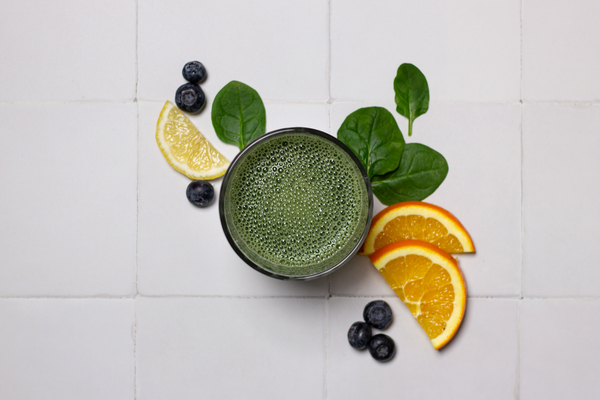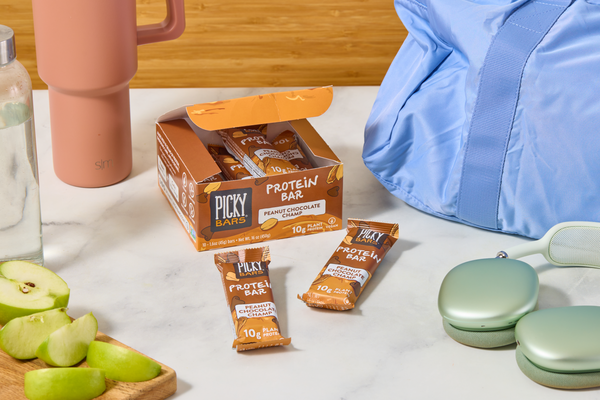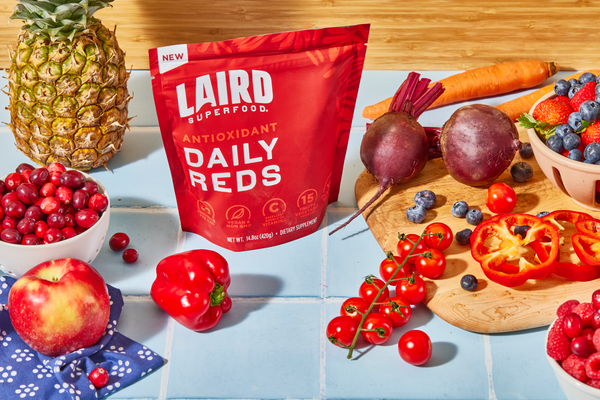Ultra-Processed Foods Are Killing You
Posted on March 21, 2024

We have known for years that eating a diet high in processed foods isn't as good for our bodies as clean eating, whole foods, and a diet rich in fruits and vegetables. However, an in-depth analysis of the impact of a diet rich in ultra-processed foods, published in BMJ, has revealed the truth about the potential impact of those foods and how they have the potential to impact overall health and wellness. The results are clear: ultra-processed foods are causing significant health risks. Potential dangers include everything from heart disease and diabetes to depression, sleep problems, and obesity.
Understanding Ultra-Processed Foods
The study defines ultra-processed foods according to the NOVA food classification system, which divides food into four groups. Group 1 is unprocessed or minimally processed foods, including things like vegetables, grains, meat, and other common dietary staples. These foods do not have sugars, oils, or fats added, though they may be cleaned or otherwise processed. Group 2 is oils, fats, sugar, and salt: processed culinary ingredients that are used to season and cook food, and Group 3—processed foods—includes combinations of foods from groups one and two.Group 4, on the other hand, is ultra-processed foods: things that are made mostly or entirely from food extracts and derivatives or that are synthesized entirely in a lab. These foods contain little to no content from Group 1 foods. Common ultra-processed foods include things that are, unfortunately, a staple of many diets today, particularly in America and Australia. They may include things like:
-
Prepackaged snacks
-
Packaged breads
-
Chicken and fish "nuggets" and "sticks"
-
Frozen pizza
-
Frozen hot dogs and burgers
-
Flavored, sweetened yogurts
-
Soft drinks
-
Candy
These foods are often highly convenient and, due to their ultra-processed nature, long-lasting. Many people reach for them all too quickly, whether for snacks or to put a meal on the table.
Potential Health Risks of Ultra-Processed Foods
Consuming a diet high in ultra-processed foods—even one that is otherwise low in calories—can lead to significant health impacts. The study notes a higher risk of developing a number of health problems when eating excessive ultra-processed foods, including:
- Cardiovascular disease-related mortality
- Type 2 diabetes
- Increased anxiety
- Mental disorders
Furthermore, people who consume diets made up of considerable amounts of ultra-processed foods have a greater risk of developing heart disease-related mortality, depression, sleep problems, wheezing, and obesity.
Common Misconceptions About Ultra-Processed Foods
As we continue to reach for the easy solution for our meals, many people cling to misconceptions that could be influencing their dietary choices.
Misconception #1: All Processed Foods Are Created Equal
While there are health risks associated with consuming ultra-processed foods, it's important to carefully examine the nutritional contents of what you're eating to get a better idea of its contents. Because of the way "ultra-processed" is defined, according to the NOVA scale, even health options can fall into the processed end of the scale. However, there are plenty of options out there that can help you enjoy an overall healthy diet while still enjoying the convenience you need from items like protein bars or protein powders.
If you're interested in learning to adapt your diet to include more whole foods and less processed options, read labels carefully. Look for options that are lower in sugar and contain a boost from whole foods.
Misconception #2: Ultra-Processed Foods Are Easier
When you're in the habit of throwing a frozen pizza in the oven or ordering delivery from your favorite fast food restaurant at the end of the day, making the switch to healthier eating can feel daunting. However, ultra-processed foods don't have to be the only "easy" option. Strategies like meal prepping can ensure that you have healthy options in your fridge and freezer that are easy to put together at the end of a long day. Furthermore, stocking your cabinet with convenient options like oatmeal, granola, and protein bars will ensure that you have plenty of handy, convenient options on hand when you're ready to reach for something to eat.
Misconception #3: Processed Foods Taste Better
Many processed foods contain flavor-enhancing ingredients, and those ingredients are often created in a lab to maximize the taste of your food. They're also frequently high in salt and sugar, which can add considerable flavor. However, there are plenty of great options out there that can maximize taste without sacrificing the quality of your food. Furthermore, as you adapt your diet to a whole foods-based one, you'll find that your taste buds adapt, allowing you to better enjoy fruits, vegetables, and other whole food solutions.
Examining the Benefits of Whole Food Nutrition
Eating a whole foods-based diet can offer a number of common benefits—and not just to your health.

1. Reduce the Risk of Developing Health Conditions
Your diet is a key component of your risk of developing a number of common health conditions, including:
- Heart disease
- Cancer
- Type 2 diabetes
- Metabolic syndrome
The risk of developing these conditions may increase substantially with age. However, a healthy diet can start at any time.
2. Stabilize Blood Sugar
When you eat a diet high in sugar, you're more likely to experience blood sugar highs and lows. When your blood sugar is high, you'll feel temporarily energetic, but as it crashes, you may feel sluggish, grumpy, and tired. By choosing a whole-food diet, you can keep your blood sugar balanced throughout the day, allowing you to maintain more consistent energy levels.
3. Maximize Nutrients
What you eat can have a substantial impact on the nutrients you're able to take in. A whole food diet is rich in a variety of nutrients, especially when you incorporate a range of fruits, vegetables, and supplements (including options like superfood mushrooms) into your daily eating. When you maximize nutrients in your food, you don't just improve your long-term health outcomes. You also give yourself more energy and enhance your performance throughout the day.
4. Decrease Cravings
An unhealthy diet can frequently lead to more unhealthy choices than you intend. You may find yourself craving those unhealthy solutions, reaching for another doughnut, or munching your way through more chips than intended. Blood sugar lows can encourage you to reach for something that will get your sugar up quickly. A whole-food diet, on the other hand, can help you decrease overall cravings.
Practical Tips for Choosing Nutrient-Rich Foods
There are a number of practical ways you can improve your overall diet and choose nutrient-rich options that support your health and wellness goals.
1. Start Strong
Breakfast is one of the most important meals of the day, not just because it's the one that provides you with the energy to start your routine, but because it's the meal that sets the stage for the rest of your food choices. When you make a good breakfast choice, including options like oatmeal or a smoothie, you'll be more likely to keep making good choices all day long. On the other hand, if you start your morning by reaching for a doughnut, you may be craving more sugar by lunchtime—and you're much more likely to overindulge throughout the day.
2. Keep Easy Options on Hand
One of the biggest reasons we overconsume ultra-processed foods is, frankly, convenience. It's easier to pull through a drive-through than it is to cook dinner. It's simpler to throw a frozen pizza in the oven than it is to cook dinner after a long day. By keeping easy options on hand, however, you provide yourself with a simple option that will make getting a healthy meal on the table—or at least in your hands—easier than you think. Try solutions like:
- Investing in healthy protein bars for easy meals and snacks on the go
- Meal prepping at the beginning of the week so that you have options to grab all week long
- Looking for simple recipes that are easy to put together
- Making two portions of a meal at a time and freezing the second one for later
By keeping those easy options on hand, you improve the convenience of healthy meals, which means you'll be more likely to choose the healthy option.
3. Read Labels
As you embark on a whole-food journey, learning how to read labels is essential. All processed and convenience foods are not the same. While some are nutrient-dense and offer a balanced approach to a healthy diet, others are filled with filler and food derivatives that will not support your health journey. Take the time to read labels and learn more about the food you're eating. Don't just reach for the first protein bar or oatmeal on the shelf; instead, take the time to see what's really in the food you're eating. Develop trust in brands that you know use healthier solutions. Over time, you'll know which options you can reach for quickly and which ones simply aren't a good fit for your needs.
4. Start Small
Making a huge dietary change can feel overwhelming, especially if you're used to reaching for processed foods for convenience. Start small! Instead of having a doughnut for breakfast, reach for a protein bar focused on real food ingredients. Try meal prepping for a few weeks to see if you like it. Switch from fast food to a home-cooked meal once a week. Making small changes is often more sustainable than trying to make huge changes all at once. Instead of feeling overwhelmed, you'll have the time to experiment and see both what works for you and what you like about those solutions. Over time, you'll find that you're better prepared to enjoy all the benefits that go along with your whole food diet. As your energy levels improve, you may even be more likely to reach for those healthy solutions!

Laird Superfood's Approach to Nutrition
At Laird Superfood, we understand the nutritional needs of our clients. We are committed to providing nutrient-rich, whole-food options that taste great while providing your body with the fuel it needs to tackle everything on your list for the day. All of our products use quality ingredients and minimal processing. If you're looking for a better option for your dietary needs, our range of choices will provide you with healthy, convenient solutions.

Laird Superfood's Product Offerings
At Laird Superfood, we offer a variety of products that will allow you to embrace your whole-food journey and its benefits. Check out:
- Daily Greens: This prebiotic mixture is aimed at improving overall gut health, including encouraging healthy bacteria to thrive. It includes 22 superfood ingredients in every scoop for a nutritional punch that's perfect for incorporating throughout your day.
- Daily Reds: The Daily Red mixture is designed to enhance recovery from activity and deliver a potent antioxidant boost. It's packed with superfoods for a solution you can feel great about incorporating into your diet every day.
- Nut Butter Bars: Nut-butter-based flavor, including almond butter, peanut butter, and hazelnut options, offers a protein boost in this delicious snack bar that’s sure to satisfy.
- Can't Beet Chocolate Oatmeal: This delicious oatmeal incorporates the benefits of oats, chia seeds, and almonds in a delicious, pink-shaded oatmeal that packs a nutritional punch.
- Plant-Based Protein Powder: When you need a quick protein boost, this protein powder delivers. Mix it into yogurt, add it to baked goods, or simply shake it up as you head off on your daily adventures.
With so many options to choose from, your problem won't be finding nutrient-rich, less-processed food choices. Instead, you may find yourself wondering which one you get to try next.

Finding the right whole-food solution can be challenging. At Laird Superfood, we aim to make it easier for you to find whole food options that will fuel your busy, active day. Check out our products to learn more about the solutions we can offer, or sign up for our email newsletter to stay updated on nutrition tips, wellness insights, and so much more.










1 comment